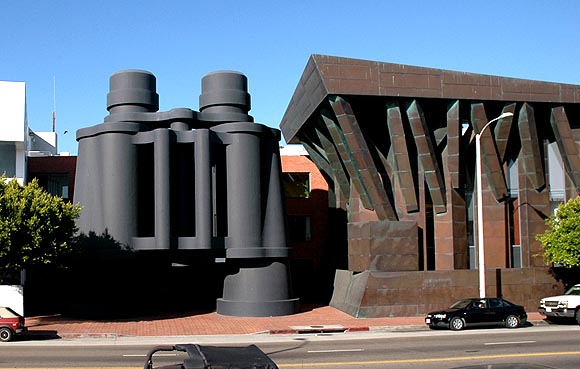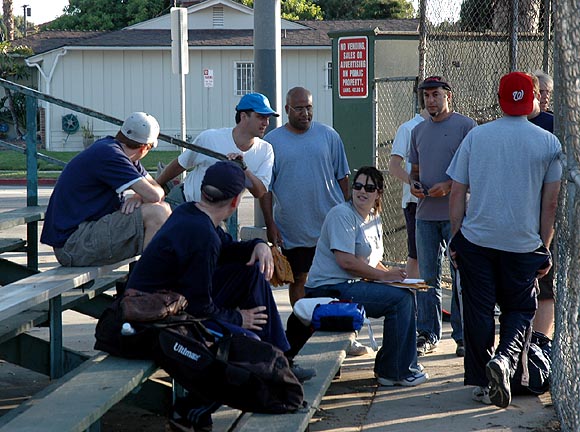Topic: The Economy
Chasing the Zeitgeist: "Are there no prisons, are there no poor houses?"
The May 22 issue of Just Above Sunset was hard to assemble. The zeitgeist ("the general intellectual, moral, and cultural climate" or, if you will, the spirit or "ghost" of the times, if that's what the German means) kept running away. Monday of the week I thought that week’s topic discussed everywhere would be the New York Times stirring up issues of class, but on Tuesday the Newsweek Koran story broke, and Wednesday everyone was talking about George Galloway blowing everyone away in the Senate hearing, on Thursday the talk was all of the responsibilities of the press and possible censorship, and Friday Laura Bush landed in the Middle East as probably the only person we could send there now without too much problem, and even then she had some trouble. As I said before, you can chase the zeitgeist all you want. It’s a slippery devil.
That week you could read A Touch of Class - a riff on the Times series and data tables Class in America: Shadowy Lines That Still Divide (May 15, with tables and interactive graphics here) – and by the way, in the Components of Class online thing I score in the 87th percentile (pretty classy).
In the item, Orwell came up. Lots of references came up. But a good deal of the discussion had to do with class mobility – not much of that these days – and why most of the heartland, or whatever we are now calling the fly-over part of America, those on the lower side of the economy, persist in supporting the current folks in power, who cut taxes for the rich and cut programs for those in the middle, and lower.
The whole discussion was buried by other issues that week, but in the last line there was the claim the issue would be back.
It's back.
Samantha Henig in the Columbia Journalism Review on June 5 notes that three major newspapers "decided within months, and even days, of one another to publish a major series exploring class in America."
The besides the New York Times?
- The Los Angeles Times "New Deal" series was last October (here).
- The Wall Street Journal published own "Moving Up: Challenges to the American Dream" on May 13 (here but you have to be a paid subscriber to read it). That seems to be the first installment of a series that will continue.
Henig's breakdown?
Much of the rest is a lengthy discussion of these techniques ? and worth a close reading if you are interested in how the press should or should not report ? but at least the topic is in the air again, or part of the zeitgeist.The Wall Street Journal led off its Friday the 13th sneak attack on the New York Times (newspapers love to play these Beat ya! games) with a headline (that left no doubt as to the series' premise: "As Rich-Poor Gap Widens in the U.S., Class Mobility Stalls, Those in Bottom Rung Enjoy Better Odds in Europe."
The piece, by David Wessel, effectively dismantled the idea of the American Dream with evidence that social mobility in the United States is no longer what it's cracked up to be. In fact, even "class-bound Europe" might offer more of an opportunity to scale the ranks than America. Although most Americans still cling to the idea that "their country remains a land of unbounded opportunity," as Wessel put it, leading economists and sociologists recently have accepted that not only does it matter who your daddy is, but it matters more now than it did thirty years ago.
? Two days later, the New York Times anteed up with a long, rather windy introduction to its own class series, an essay that was striking, among other things, for its lack of actual reporting. It, too, included the obligatory Benjamin Franklin reference, as well as quotes from Becker and Solon.
Once it was done clearing its throat for the entire length of its opener, the Times in subsequent parts of its series served up an avalanche of detailed, if largely anecdotal, reporting. But in the process it essentially abandoned the sort of critical analysis of class in America over the past few decades that the Journal and, earlier, the Los Angeles Times, had attempted. Instead, the Times set out to look at how class affects individuals. Not individuals in the aggregate, but rather a few very specific individuals: "a lawyer who rose out of an impoverished Kentucky hollow; an unemployed metal worker in Spokane, Wash., regretting his decision to skip college; a multimillionaire in Nantucket, Mass., musing over the cachet of his 200-foot yacht." Each day brought a new topic - health, marriage, religion, education, immigration, corporate nomads - with a new set of stories to illustrate how conceptions of class color each of those topics.
But what was said, not how it was said, was more interesting ? and the local paper out here led the way -
Why so many people less financially secure than ever before "even as the nation, by many measures, has grown far more prosperous." It was because of "a deliberate shifting of economic risks from the broad shoulders of business and government to the backs of working families."? months before the New York Times and Wall Street Journal were exploring class, the Los Angeles Times was drawing some conclusions of its own - and timely ones, at that. Starting its series in the heat of election fever, the Times drew connections between the isolated rags-to-riches or riches-to-rags tales, the academic research showing stagnated social mobility, and the political implications of the two.
The first article of its series, by Peter G. Gosselin, published on October 10, 2004, called attention to a deliberate move by government leaders that began 25 years ago to rely upon and even subsidize the free market, while cutting back on government regulation and reining in social programs. The resulting economic makeover, Gosselin says, "has come at a large and largely unnoticed price: a measurable increase in the risks that Americans must bear as they provide for their families, pay for their houses, save for their retirements and grab for the good life." He questioned President Bush's campaign assertions at the time that "people are better off relying on themselves, rather than on business or government, in case of trouble" by providing both anecdotal and analytical evidence to the contrary.
Instead of just presenting individual anecdotes and relying on pathos to keep people reading, leaving the question of "but how do we fix this?" dangling unsaid, the Los Angeles Times dared not only to ask, but also to answer. ?
So? Stop doing that.
In fact, the Los Angeles Times came back on May 15, the same day that the New York Times published its extensive overview of class, with an article (a special in the business section) examining the current administration policies - Bush's recommendations for Social Security, and the recent court ruling which permits "United Airlines' parent to dump its pensions on the federal government," thereby leaving "workers and their families bearing big new risks." It wasn't pretty. In other words, something is up.
Friday, June 10, in the New York Times, Paul Krugman in Losing Our Country decides to explain just what's up ? as each major newspaper on each coast is now working the issue.
Krugman?
So, as they said out here in Los Angeles, this is deliberate?? The middle-class society I grew up in no longer exists.
Working families have seen little if any progress over the past 30 years. Adjusted for inflation, the income of the median family doubled between 1947 and 1973. But it rose only 22 percent from 1973 to 2003, and much of that gain was the result of wives' entering the paid labor force or working longer hours, not rising wages.
Meanwhile, economic security is a thing of the past: year-to-year fluctuations in the incomes of working families are far larger than they were a generation ago. All it takes is a bit of bad luck in employment or health to plunge a family that seems solidly middle-class into poverty.
But the wealthy have done very well indeed. Since 1973 the average income of the top 1 percent of Americans has doubled, and the income of the top 0.1 percent has tripled.
Why is this happening? I'll have more to say on that another day, but for now let me just point out that middle-class America didn't emerge by accident.
Well, yes (and the emphases are mine) -
That's one angry Yale economist. But not far off the mark. As mentioned before, I have heard the same arguments from my conservative friends ? opposition to these ever-increasing tax cuts for the extremely wealthy is "class warfare" and just plain envy of those who did something with their lives, or inherited vast sums from someone in the family who once did something with their lives. Why should they support lazy people with no sense of personal responsibility. And so on and so forth?Since 1980 in particular, U.S. government policies have consistently favored the wealthy at the expense of working families - and under the current administration, that favoritism has become extreme and relentless. From tax cuts that favor the rich to bankruptcy "reform" that punishes the unlucky, almost every domestic policy seems intended to accelerate our march back to the robber baron era.
It's not a pretty picture - which is why right-wing partisans try so hard to discredit anyone who tries to explain to the public what's going on.
These partisans rely in part on obfuscation: shaping, slicing and selectively presenting data in an attempt to mislead. For example, it's a plain fact that the Bush tax cuts heavily favor the rich, especially those who derive most of their income from inherited wealth. Yet this year's Economic Report of the President, in a bravura demonstration of how to lie with statistics, claimed that the cuts "increased the overall progressivity of the federal tax system."
The partisans also rely in part on scare tactics, insisting that any attempt to limit inequality would undermine economic incentives and reduce all of us to shared misery. That claim ignores the fact of U.S. economic success after World War II. It also ignores the lesson we should have learned from recent corporate scandals: sometimes the prospect of great wealth for those who succeed provides an incentive not for high performance, but for fraud.
Above all, the partisans engage in name-calling. To suggest that sustaining programs like Social Security, which protects working Americans from economic risk, should have priority over tax cuts for the rich is to practice "class warfare." To show concern over the growing inequality is to engage in the "politics of envy."
But the real reasons to worry about the explosion of inequality since the 1970's have nothing to do with envy. The fact is that working families aren't sharing in the economy's growth, and face growing economic insecurity. And there's good reason to believe that a society in which most people can reasonably be considered middle class is a better society - and more likely to be a functioning democracy - than one in which there are great extremes of wealth and poverty.
Reversing the rise in inequality and economic insecurity won't be easy: the middle-class society we have lost emerged only after the country was shaken by depression and war. But we can make a start by calling attention to the politicians who systematically make things worse in catering to their contributors. Never mind that straw man, the politics of envy. Let's try to do something about the politics of greed.
Why?
Bob Herbert explained four days earlier in the New York Times - and cited the Los Angeles Times of all things - in The Mobility Myth -
And what do we have here ? is the right correct in sensing a vast left-wing anti-free-enterprise and union-loving media conspiracy? Are the poor revolting against their betters? (If so, they would have to account for the Wall Street Journal exploring the same topic ? but perhaps one can assume the Journal, as America's business newspaper, is worried that we might be facing a new and sudden scarcity of consumers with ready cash to buy this and that, and thus something really, really bad for corporations.)The war that nobody talks about - the overwhelmingly one-sided class war - is being waged all across America.
Guess who's winning.
A recent front-page article in The Los Angeles Times showed that teenagers are faring poorly in a tight job market because of the fierce competition they're getting from older workers and immigrants for entry-level positions.
On the same day, in the business section, the paper reported that the chief executives at California's largest 100 companies took home a collective $1.1 billion in 2004, an increase of nearly 20 percent over the previous year. The paper contrasted that with the 2.9 percent raise that the average California worker saw last year.
The gap between the rich and everybody else in this country is fast becoming an unbridgeable chasm.?
A conspiracy? You might think so when Herbert says things like this -
Yeah, so? "Are there no prisons, are there no poor houses?"?. The bottom line is that it's becoming increasingly difficult for working Americans to move up in class. The rich are freezing nearly everybody else in place, and sprinting off with the nation's bounty.
Economic mobility in the United States - the extent to which individuals and families move from one social class to another - is no higher than in Britain or France, and lower than in some Scandinavian countries. Maybe we should be studying the Scandinavian dream.
As far as the Bush administration is concerned, the gap between the rich and the rest of us is not growing fast enough.
? Many in the middle class are mortgaged to the hilt, maxed out on credit cards and fearful to the point of trembling that all they've worked for might vanish in a downsized minute.
The privileged classes, with the Bush administration's iron cloak of protection, avoid their fair share of taxes, are reluctant to pay an honest dollar for an honest day's work (the federal minimum wage is still a scandalous $5.15 an hour), refuse to fight in their nation's wars, and laugh all the way to their yachts.
The American dream was about expanding opportunities and widely shared prosperity. Now we have older people and college grads replacing people near the bottom in jobs that offer low pay, no pensions, no health insurance and no vacations.
A fellow named Mark McClellan, who was bounced out of a management position when Kaiser Aluminum closed down in Spokane, Wash., told The Times in the "Class Matters" series: "I may look middle class. But I'm not. My boat is sinking fast."
But the fellow who said that in the Dickens novel is not presented as the good guy for saying those words. (You could look it up.)
Times have changed since then. Actually, much said on the right, and by the administration, now sounds just like that ? and now such questions are accepted as simply urging people to accept personal responsibility, or suffer the consequences. Life is risk. Deal with it. And don't ask anyone to join you in sharing life's risks ? Americans believe in taking care of themselves.
A brief aside ? my conservative friend, as we shared a second or maybe third bottle of Tuscan wine, declared insurance, the whole design of shared risk pools for home and auto and healthcare and whatever, was just immoral. I think the idea was that every individual should be responsible for paying for what happens in life ? auto accidents, major and even catastrophic health problems and that sort of thing. If you don't have the money yourself to take care of such things, then that's your problem and no one else's, as otherwise you're just a parasite on the successful folks. Really? Ah, maybe it was the wine.
In any event, there is something afoot here with all this press.
Been chasing the zeitgeist. Finally caught something.
Posted by Alan at 20:35 PDT
|
Post Comment |
Permalink
Updated: Friday, 10 June 2005 20:53 PDT
home









